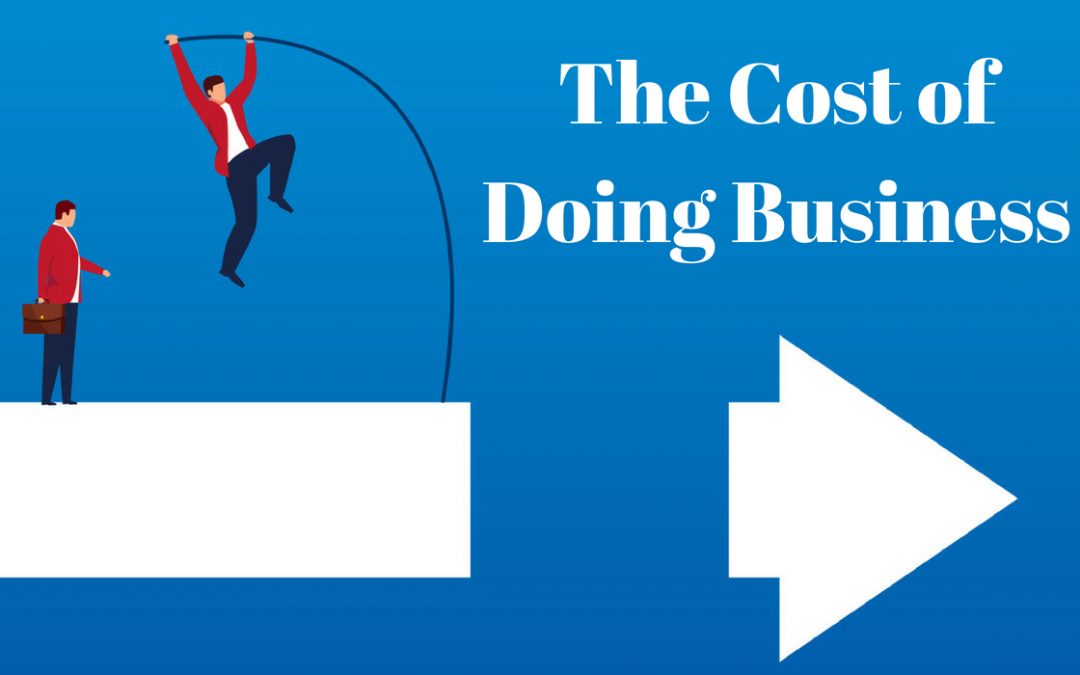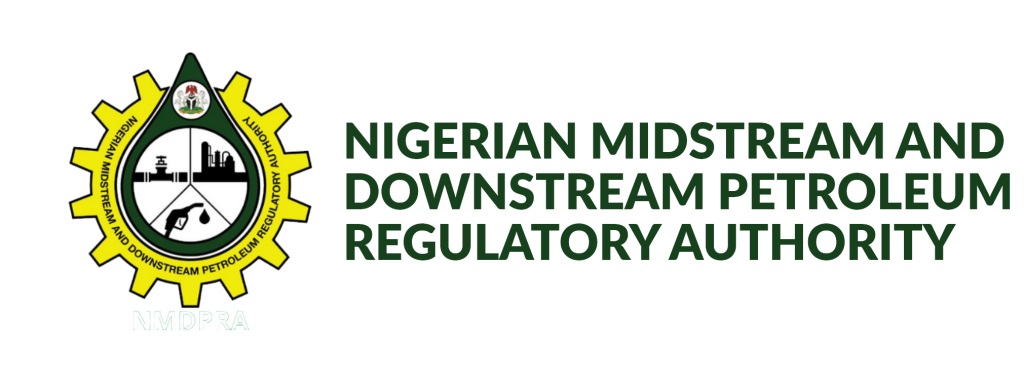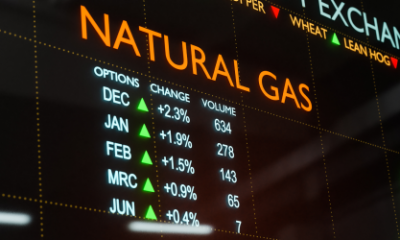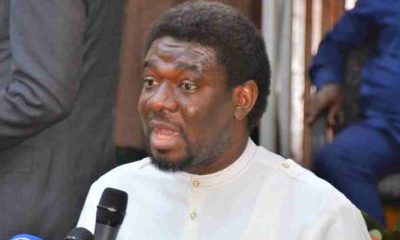Economy
NMDPRA Targets Gas Utilisation to Cut High Cost of Doing Business

By Adedapo Adesanya
The Nigerian Midstream and Downstream Petroleum Regulatory Authority (NMDPRA) has disclosed that the country’s natural gas exploitation and utilisation would help cut down the cost of doing business by 40 per cent.
Its chief executive, Mr Farouk Ahmed, at a one-day stakeholders engagement on Gas Utilisation in Nigeria, said that it has become important for companies and homes to key into gas utilisation as alternative fossil fuel.
Mr Ahmed, who was represented by Mr Ogbugo Ukoha, the Executive Director, Distribution, System, Storage and Retailing Infrastructure of NMDPRA, enjoined Nigerians to massively adopt the usage of gas as against diesel and petrol for their daily energy needs.
He said that this would reduce the nation’s carbon footprint and tackle global warming as well as climate change.
“It will also help to reposition the economy for sustainable growth and accelerate job creation since gas is believed to be the future of the nation’s economy,” he noted.
Mr Ahmed said that the essence of the engagement was to encourage large consumers of petroleum products to become aware of the comparative advantages between the different fuels, particularly gas, which he added had been designated as Nigeria’s transition fuel.
He explained that to promote gas usage and investment, the federal government had various initiatives and policy frameworks which included the National Gas Expansion Programme (NGEP) and the Decade of Gas Programme.
He observed that the Petroleum Industry Act (PIA) 2021 had also enabled investments in the industry.
Mr Ahmed expressed gladness that the government effort was yielding significant results but added that more collaborations were needed to improve domestic gas utilisation.
The NMDPRA boss reiterated that Nigeria was blessed with abundant gas reserves, enough to last the nation for the next 90 years.
According to him, effective gas utilisation will make the nation become richer and the environment safer because it is much cleaner than other petroleum derivatives.
He said another great benefit of gas utilisation was the tendency to reduce the cost of doing business by 40 per cent.
Mr Ahmed called on heavy consumers of energy to convert their diesel generators to gas engines, saying that it was cost-effective.
He also advised consumers on the need to be properly licensed because of the numerous benefits attached.
These, he noted, include ensuring the safety of facilities and regular supplies of the product from the authority.
Delivering a keynote address, Mr Ogbugo Ukoha, the Executive Director, Distribution, System, Storage and Retailing Infrastructure of NMDPRA, said that many institutions were ‘heaviest consumers’ of diesel and have been identified as operating outside the regulatory oversight, which is not in accordance with the Petroleum Industry Act (PIA).
Mr Ukoha, who was represented by Mr Ayo Cardoso, Coordinator, South West of NMDPRA, said the engagement was enlightenment on the need to obtain the requisite petroleum storage urgently.
Mr Ukoha said the exercise was to take advantage of the evolving opportunities in the gas value chain for sustainable business growth.
He said the enactment of the PIA 2021 was designed to enable Nigeria to derive more value from its natural gas.
According to him, Nigeria is embarking on different initiatives, projects and policies to enhance the performance of the oil and gas sector.
He said one of the gas initiatives in Nigeria includes the NGEP, which was designed to provide framework and policy support to extend the gas supply and utilisation in power generation, gas-based industries and emerging niche gas sectors.
“Such sectors are gas in transportation, Liquefied Petroleum Gas (LPG) for cooking and remote virtual gas supply using trucks to convey LNG and Compressed Natural Gas (CNG) to industries,” he said.
He noted that natural gas was projected to be the leading fossil fuel and well-positioned as a sustainable fuel for an effective energy transition.
Also speaking, Mr Oladipo Olatunbosun, National President of the Nigerian Association of Liquefied Petroleum Gas Marketers (NALPGAM), said that the unaffordability of LPG posed serious challenges to the common man.
Mr Olatunbosun urged the authority to review the pricing of cooking gas to attract more utilisation and penetration.
He appealed to NMDPRA to sanction all illegal LPG skid operators within their operational cycle to create opportunities for legitimate marketers.
Economy
NGX RegCo Cautions Investors on Recent Price Movements

By Aduragbemi Omiyale
The investing public has been advised to exercise due diligence before trading stocks on the Nigerian Exchange (NGX) Limited.
This caution was given by the NGX Regulation Limited (NGX RegCo), the independent regulatory arm of the NGX Group Plc.
The advisory became necessary in response to notable price movements observed in the shares of certain listed companies over recent trading sessions.
On Monday, the bourse suspended trading in the shares of newly-listed Zichis Agro-allied Industries Plc. The company’s stocks gained almost 900 per cent within a month of its listing on Customs Street.
In a statement today, NGX RegCo urged investors to avoid speculative trading based on unverified information and to consult licensed intermediaries such as stockbrokers or investment advisers when needed.
It explained that its advisory is part of its standard market surveillance functions, as it serves as a measured reminder for investors to prioritise informed and disciplined decision-making.
The notice emphasised that the Exchange will continue to monitor market activities closely in line with its mandate to ensure a fair, orderly, and transparent market.
“NGX RegCo encourages all investors to base their decisions on publicly available information, including a thorough assessment of company fundamentals, financial performance, and risk profile,” a part of the disclosure said.
It reassured all stakeholders that the NGX remains stable, well-regulated, and resilient, saying the platform continues to foster an environment where investors can participate with confidence, supported by robust oversight and transparent market operations.
“Our primary responsibility is to maintain a level playing field where market participants can trade with confidence, backed by timely and accurate information.
“This advisory is a routine communication, reinforcing that sound fundamentals, not speculation, remain the foundation for sustainable investment outcomes. We are fully committed to preserving the integrity and stability of our market,” the chief executive of NGX RegCo, Mr Olufemi Shobanjo, stated.
Economy
Stronger Taxpayer Confidence, Others Should Determine Tax Reform Success—Tegbe

By Modupe Gbadeyanka
The chairman of the National Tax Policy Implementation Committee (NTPIC), Mr Joseph Tegbe, has tasked the Nigeria Revenue Service (NRS) to measure the success of the new tax laws by higher voluntary compliance rates, lower administrative costs, fewer disputes, faster resolution cycles, and stronger taxpayer confidence.
Speaking at the 2026 Leadership Retreat of the agency, Mr Tegbe said, “Sustainable revenue performance is built on trust and efficiency, not enforcement intensity,” emphasising that the legitimacy and predictability of the system are more critical than punitive measures.
He underscored that the country’s tax reform journey is at a critical juncture where effective implementation will determine long-term fiscal outcomes.
The NTPIC chief stressed that tax policy must serve as an enabler of governance, and should embody simplicity, equity, predictability, and administrability at scale.
These principles, he explained, foster voluntary compliance, reduce operational friction, and strengthen investor confidence. He warned that ad-hoc adjustments or policy drift could undermine reform momentum, unsettle businesses, and deter investment, which thrives on predictable rules rather than shifting announcements. Structured sequencing, clear transition mechanisms, and continuous feedback between policymakers and administrators are therefore critical to sustaining reform credibility.
Mr Tegbe further argued that revenue reform cannot succeed in isolation. Achieving sustainable gains requires a whole-of-government approach, leveraging robust taxpayer identification systems, integrated financial data, efficient dispute resolution, and harmonised coordination across federal and sub-national levels. This approach, he said, reduces leakages, eliminates multiple taxation, and reinforces confidence in the system.
He noted that the passage of four new tax laws marks only the beginning of a broader reform agenda, describing the initiative as a systemic recalibration of Nigeria’s fiscal architecture, rather than a routine policy update.
He further asserted that the true measure of success will be the credibility of implementation, not the design of the laws themselves.
The NRS, he noted, functions as the nation’s “Revenue System Integrator,” with outcomes reflecting the strength of an interconnected ecosystem that encompasses policy clarity, enforcement consistency, digital infrastructure, dispute resolution efficiency, and intergovernmental coordination.
Economy
NUPENG Seeks Clarity on New Oil, Gas Executive Order

By Adedapo Adesanya
The National Union of Natural and Gas Workers (NUPENG) has expressed deep concern over the Executive Order by President Bola Tinubu mandating the Nigerian National Petroleum Company (NNPC) Limited to remit directly to the federation account.
In a statement signed by its president, Mr William Akporeha, over the weekend in Lagos, the union noted that the absence of detailed public engagement had naturally generated tension within the sector and heightened restiveness among workers, who are anxious to know how the new directive may affect their employment, welfare and job security, especially as it affects NNPC and other major operations in the oil and gas sector.
It pointed out that the industry remained the backbone of Nigeria’s economy, contributing significantly to national revenue, foreign exchange earnings, and employment.
The NUPENG president affirmed that any policy shift, particularly one introduced through an Executive Order, has far-reaching consequences for regulatory frameworks, Investment decisions, operational standards, and labour relations within the sector.
According to him, “there is an urgent need for clarity on the scope and objectives of the Executive Order -What precise reforms or adjustments does it introduce? “Its implications for the Petroleum Industry Act -Does the Order amend, interpret, or expand existing provisions under PIA?
“Impact on workers and existing labour agreements-Will it affect job security, conditions of service, Collective Bargaining agreements or ongoing restructuring processes within the industry? “Effects on indigenous participation and local content development -How will it affect Nigerian companies and employment opportunities for citizens?”
He warned that without proper consultation and explanation, misinterpretations of the Executive Order may spread across the industry, potentially destabilising operations and undermining industrial harmony that stakeholders have worked hard to sustain.
“Though our union remains committed to constructive engagement, national development and stability of the oil and gas sector, however, we are duty-bound and constitutionally bound to protect the rights and welfare and job security of our members whose livelihoods depend on a clear, fair and predictable policy framework,” Mr Akporeha further stated.
-

 Feature/OPED6 years ago
Feature/OPED6 years agoDavos was Different this year
-
Travel/Tourism10 years ago
Lagos Seals Western Lodge Hotel In Ikorodu
-

 Showbiz3 years ago
Showbiz3 years agoEstranged Lover Releases Videos of Empress Njamah Bathing
-

 Banking8 years ago
Banking8 years agoSort Codes of GTBank Branches in Nigeria
-

 Economy3 years ago
Economy3 years agoSubsidy Removal: CNG at N130 Per Litre Cheaper Than Petrol—IPMAN
-

 Banking3 years ago
Banking3 years agoSort Codes of UBA Branches in Nigeria
-

 Banking3 years ago
Banking3 years agoFirst Bank Announces Planned Downtime
-

 Sports3 years ago
Sports3 years agoHighest Paid Nigerian Footballer – How Much Do Nigerian Footballers Earn























